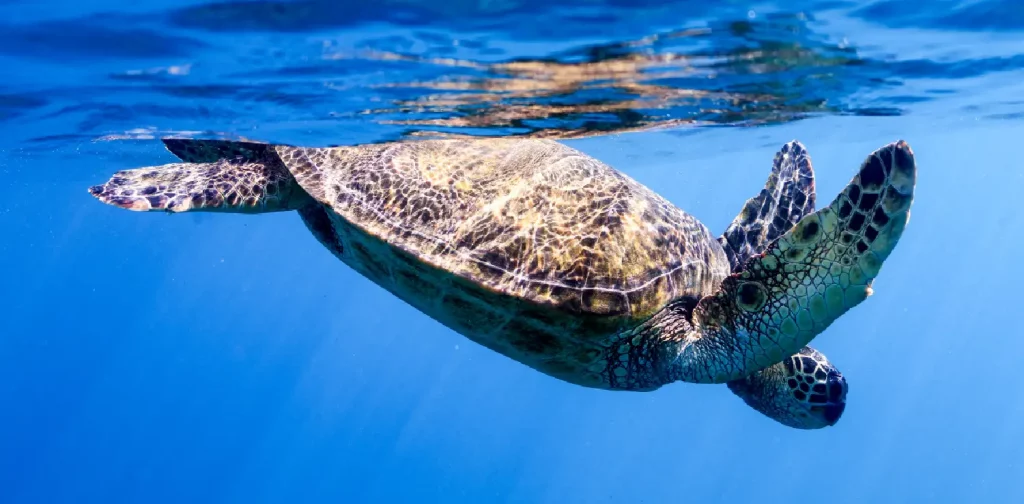Part of Your World: Ocean Issues and Mitigation Efforts

Photo: TJ Fitzsimmons on Unsplash.
The first thing that comes to mind when hearing about the ocean might be its size. Ocean covers 70% of the Earth’s surface. Thousands of biodiversity live in the ocean, contributing to the overall balance of the planet’s ecosystems. People seek a living out of the ocean, some with big boats, some with small boats. It’s undeniable how vital the ocean is for life on earth. But how are our ocean conditions right now? What are our current ocean issues and mitigation efforts?
The second thing that comes to mind when hearing about the oceans might be how much it has suffered over the past decades. The ocean is essential but is also one of the most vulnerable to the changing climate and other world crises. As the need to care for the planet becomes more urgent, let’s look into our ocean issues, mitigation efforts, and overall conditions.
Pollution and Clean-ups
Pollution is one of the most pressing issues for the oceans. It comes in many forms, but plastic pollution makes up most of the trash swimming in the sea. A 2022 report by Organisation for Economic Co-operation and Development (OECD) reveals that global plastic waste generation reached 353 million tons, and only 9% was recycled correctly. An estimated 30 metric tons of plastic waste is floating in seas and oceans. Beyond plastics, marine pollution also comes from shipping activities and oil spills, which are equally detrimental to the ocean’s health and inhabitants.
Many efforts, big and small, have been implemented to reduce marine pollution. Initiatives like the Ocean Clean-up aim to lift plastics from the ocean using large-scale technology. On the other hand, smaller-scale corporate responsibility activities are also done worldwide for beach clean-ups. New innovations have also emerged, such as using human hair to clean up oil in our waterways.
Biodiversity Decline and Conservations
The warming and acidification of the ocean is one of the impacts of climate change. While this will undoubtedly affect us on land, marine biodiversity suffers the direct impacts of pollution and other ocean threats. Not only the big creatures like whales and fishes, tiny organisms on the ocean beds are also affected.
The warming ocean makes it unlivable for some of its biodiversity. It changes whale migration patterns and disrupts the growth of seagrass meadows, all of which have crucial roles in creating a balanced ocean ecosystem. In other cases, the aciding ocean makes certain plants bloom uncontrollably and threatens coastal ecosystems.
As the effort to reduce greenhouse gas emissions is going on worldwide, conservation efforts for marine biodiversity are equally crucial. In Abu Dhabi, governments, communities, and conservationists are collaborating to restore land and sea areas by 2030. The Great Barrier Reef in Australia also showed signs of recovery in 2022, with new captive-coral spawned for the first time in the nursery before the annual reproductive season.
Blue Economy and Sustainable Oceans Use
When discussing the ocean, the economy becomes a part that cannot be overlooked. The vast ocean holds abundant opportunities that can improve the world’s economy if used sustainably and responsibly. Blue economy has emerged as a way to ensure sustainable use of the ocean while still benefiting the economy. It includes fisheries and aquaculture, tourism, renewables, and transport.
The ocean is vast, and it connects nations. Therefore, responsibly harnessing the oceans’ potential needs international partnerships, agreements, and frameworks to create meaningful progress. Countries with substantial ocean resources, like Vietnam, have begun to tap into the potential of the blue economy to improve their GDP. Improving the economy of coastal communities can also go hand-in-hand with environmental restoration.
Tackling Ocean Issues Together
World Oceans Day is observed every June 8. It serves as a reminder of our ocean issues and overall conditions and how we can all contribute to improving them. However, the efforts to conserve and protect the ocean should always be going all year round as the threats seem to continue. Improving the ocean conditions require large-scale participation from all related stakeholders, including international organizations, governments, communities, and researchers. As the lives on Earth are connected, progress must be made without leaving anyone anywhere behind.
Editor: Nazalea Kusuma


 Women in Waste Management: Asia’s Circularity Runs on Women. Its Policies Still Don’t
Women in Waste Management: Asia’s Circularity Runs on Women. Its Policies Still Don’t  Embracing the Business Value of Sustainability
Embracing the Business Value of Sustainability  American Farmers Call for Government Support Amidst PFAS Contamination
American Farmers Call for Government Support Amidst PFAS Contamination  Asia Pacific’s SDG Progress Faces Major Setbacks
Asia Pacific’s SDG Progress Faces Major Setbacks  Exploring the Bidirectional Relationship Between Olympic Games and the Environment
Exploring the Bidirectional Relationship Between Olympic Games and the Environment  The Hidden Threat of Tire Pollution to Salmon Populations
The Hidden Threat of Tire Pollution to Salmon Populations